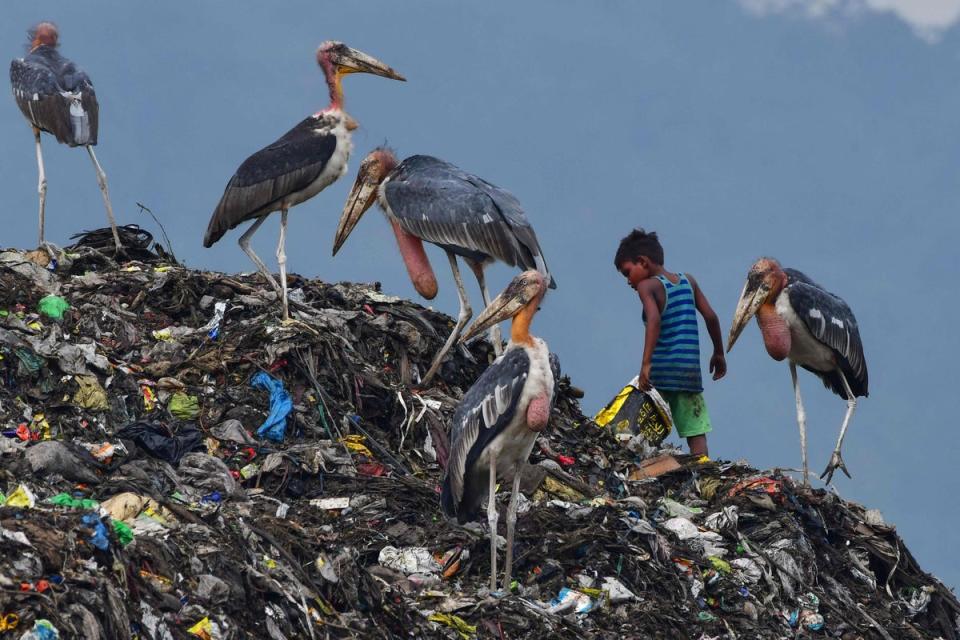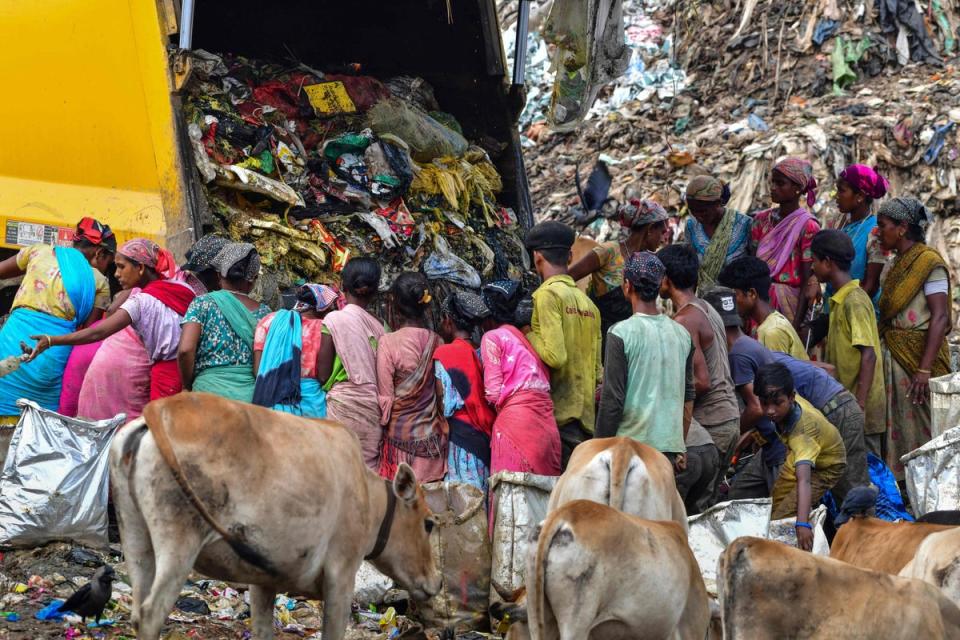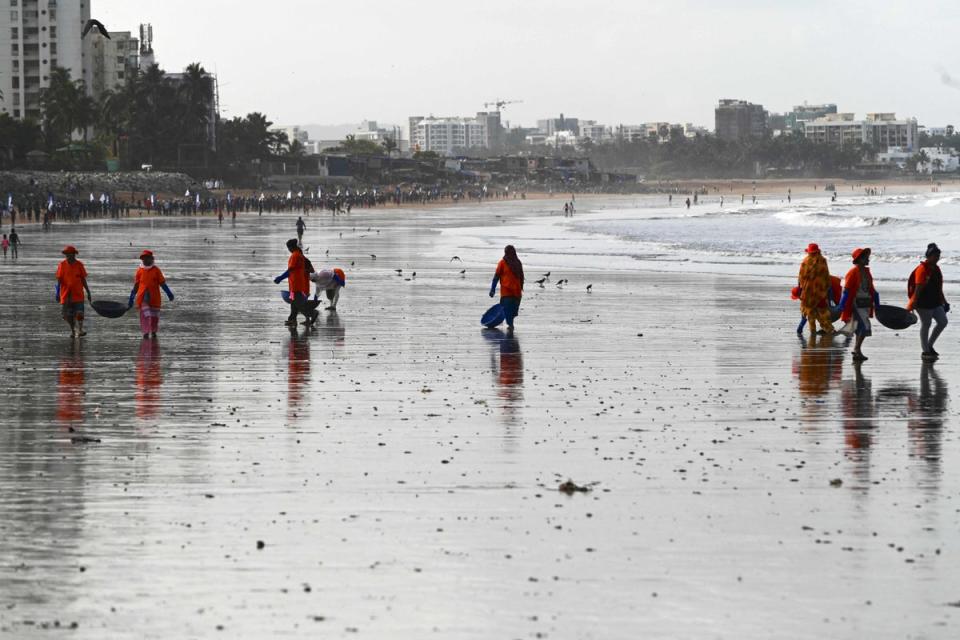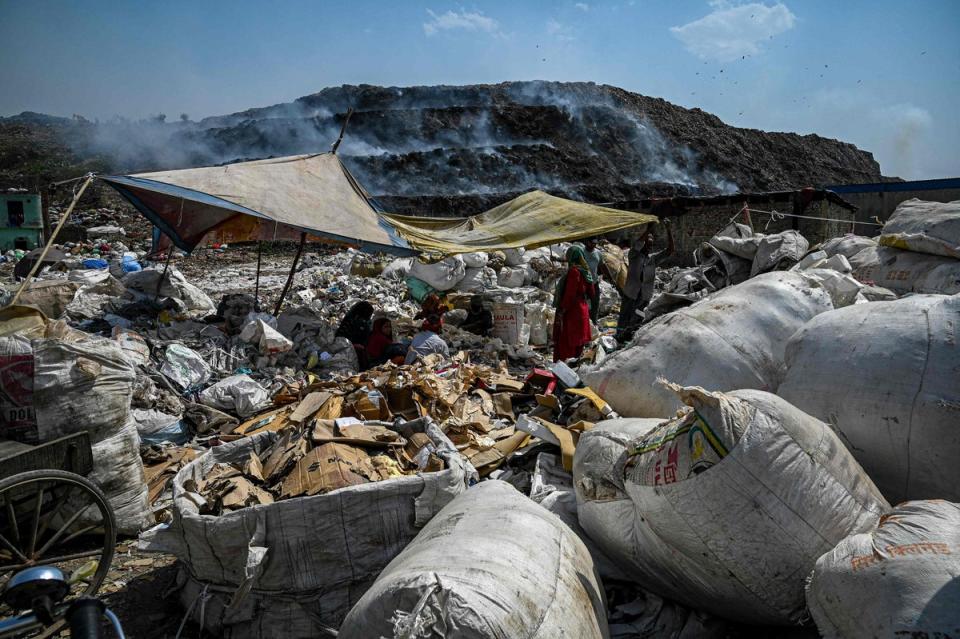India imposes nationwide ban on many single-use plastics but huge challenges remain

India has implemented a ban on single-use or disposable plastic products from yesterday, despite pressure from manufacturers to defer the measure as the nation of 1.4 billion aims to phase out the material altogether.
Plastic cups, straws, and some disposable plastic bags are among 19 single-use plastic items that are now illegal to produce, import, stock, distribute or sell.
Violating the ban is punishable with a fine or even a jail term, the federal environment ministry said.
But doubts remain over the chances of the ban proving effective, as small businesses struggle to find viable alternatives to the plastic products. Popular items such as drinks bottles and crisp packets, which frequently become litter, are exempt from the ban – a major problem in a country where rubbish is a common sight.
India’s government says the move is part of a larger plan to eventually phase out plastic, a leading cause of pollution around the world.

The government has set targets for manufacturers to be responsible for recycling or disposing of plastic after use, despite enormous pressure from the plastics industry to delay the implementation of the new rules.
The ban had already been deferred several times following legal challenges.
Plastics manufacturers, who are already subject to pressure from inflation on top of job losses during the Covid pandemic, claim that the ban has increased their burden.
Concerns about finding suitable alternatives for numerous sellers and small businesses, to prevent them from suffering financial difficulties, also remain.
But environment minister Bhupender Yadav said at a press briefing in New Delhi that the ban had been in the pipeline for a year. “Now that time is up,” he said.
Plastic bans have been trialled before in some parts of India, but this is the first nationwide legislation.

Experts said that while the move was a “definite boost” to the country’s environmental efforts, the implementation of the ban and its assessment will decide whether India’s plastic pollution woes will be resolved and the country’s mounds of rubbish reduced.
“Given the magnitude of the plastic crisis, this is too little. And it’s too little both in its scope as well as the coverage,” said Satyarupa Shekhar, the Asia-Pacific coordinator for advocacy group Break Free from Plastic.
Dharmesh Shah, an adviser with environmental advocacy group Legal Initiatives for Forest and Environment (LIFE), told The Independent that while this is definitely a step in the right direction, it’s still a “wait and watch game”, as actual enforcement depends on the municipal bodies of individual states and cities.
“We have to wait and watch what the implementation mechanism is going to be – how they’re going to go after manufacturing, which is your main concern,” Mr Shah said, adding: “Given our past experience with banning plastic was unsuccessful, I think there’s a lot of scepticism.”
Earlier this year, India’s National Green Tribunal (NGT) – a government agency that handles environment-related cases – lashed out at authorities for the poor implementation of exisiting rules on plastics by state governments, union territories and urban local bodies.

India has always faced challenges in enforcing rules against plastic, even under prime minister Narendra Modi’s flagship Swachh Bharat (Clean India) campaign, as plastic debris can still be found nearly everywhere in India – stacked along roadsides, floating in waterways, and clogging the country’s drainage systems.
The country is the world’s third-largest producer of plastic waste, trailing behind only the US and China, according to a recent report from Australia’s Minderoo Foundation.
This time, the government claims to have found alternatives, in bamboo straws instead of plastic ones, and thicker plastic bags to fill in for the banned thin ones – a product it hopes will encourage recycling because of its longevity.
Thinner carrier bags find fewer takers among waste collectors across 11 informal recycling hubs in the national capital Delhi, according to a survey conducted last year by non-profit Toxics Link, which is based in the city.
The survey found that soiled and discarded bags – especially thinner ones – often contained rotten food, making them unfit for reuse.
India produces over 4.1 million metric tonnes (4.5 million US tons) of plastic waste, according to its federal pollution watchdog. About 15 per cent of the plastic is usually burnt, unleashing harmful gases.
And for small shopkeepers, finding alternatives isn’t easy. Thin plastic bags are a go-to product for small vegetable vendors and sellers in India, who buy them in bulk or at cheap rates.
Moti Rahman, 40, one such vegetable vendor in Delhi, told reporters that while he agrees with the new rules, he worries about the hit his business will take if plastic bags are banned without a readily available and equally cost-effective replacement.

“After all, plastic is used in everything,” he said.
There are also concerns among industry experts that the ban could lead to such products being sold on the black market as the government cracks down on manufacturers.
Mr Shah said that, despite the challenges, he is just “cautious, and not pessimistic about the ban”. However, he added that a pushback from affected industries could possibly result in the government backtracking, since the economy will remain its focus.
The move by India is the latest in a series of measures taken by countries such as China and Canada, which have decided to curb the manufacture and purchase of plastic as calls to get rid of the material grow globally.
Most plastic isn’t recycled globally, and millions of tonnes pollute the world’s oceans, harming wildlife and affecting drinking water.

